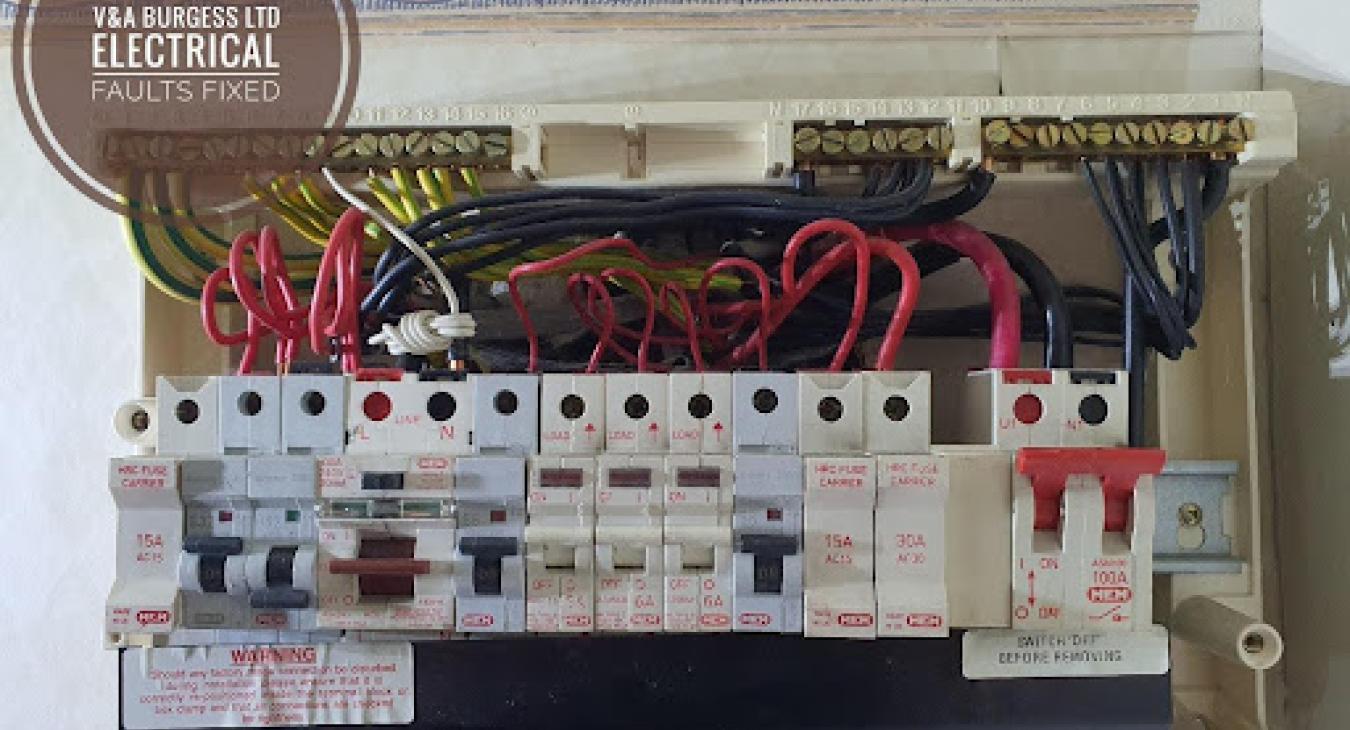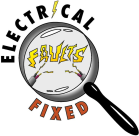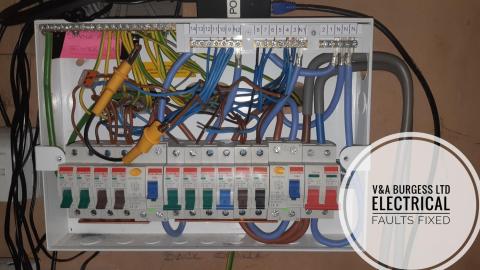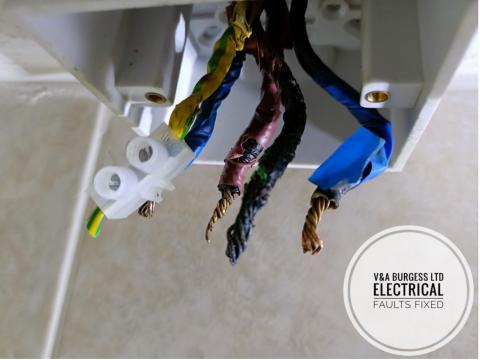
1) What is a Trip Switch RCD?
A TRIP SWITCH RCD is a type of device that prevents electric shock to persons. It does this by monitoring the electrical circuits in your home and when it detects a problem, it shuts off power to the circuits that it supplies. Somewhat annoyingly, it also trips when there is moisture, faulty appliances and a variety of other reasons meaning that these switches do occasionally trip for reasons other than electric shock.
Back to top2) How does it work?⚡
The RCD is a clever device. First, we have to understand a bit of science to get how this device works. In every electrical circuit there is a LINE and a NEUTRAL wire. When an electrical current flows through a wire there is an electromagnetic field that is generated which is completely invisible to us. When the current flows down the LINE conductor there is a magnetic field generated of a strength proportional to the current flowing down the conductor. There should be an equal electrical current flowing down the NEUTRAL conductor also generating an equal strength magnetic field in the opposing direction to the LINE conductor. These magnetic fields are equally strong and in opposing directions in a healthy circuit. The magnetic fields cancel each other out when this is the case and the resultant magnetic field strength is ZERO. When there is an issue on an electrical circuit and some electrical current goes missing, such as a person receiving a shock or an appliance leaking electrical current to earth the magnetic fields do not fully cancel each other out and there is a resultant magnetic field that is present. The RCD detects this magnetic field and when the field is of suitable strength, it turns off the power. Basically, the device saves lives and protects people from injury and homes from damage.
Back to top3) Do I need an RCD?
A TRIP SWITCH RCD is absolutely vital in all domestic electrical installations these days. The RCD can also come in the form of the RCBO which is an RCD and a circuit breaker all in one device. These devices are better than a standalone RCD device as they monitor individual circuits rather than bunches of circuits meaning less nuisance tripping and less inconvenience in the event of an electrical fault. The RCBO is a much better way to comply with the wiring regulations these days and although slightly more expensive to install over a typical DUAL RCD consumer unit, the RCBO consumer unit is definitely the way forward.
Back to top4) What type of RCD or RCBO should we have?🤔
There are many homes that currently do not have RCD protection anywhere in the electrical system and these should be upgraded as soon as possible. An electrical inspection should be carried out on the existing wiring system to make sure that a new consumer unit will turn on and that there are no dangerous defects in the existing system before the new installation takes place. RCD devices come in different types.
The AC type RCD is the older style of RCD device and will require replacement in many cases. An AC RCD should only be installed where there are no circuits containing items such as televisions, electronics, LED lighting and other modern equipment. This type of device is suited to applications such as immersion elements and older electric showers that contain no electronics. They are not suitable for the vast majority of modern homes as they are likely to be blinded by the modern equipment and DC electrical currents that we now have in our homes.
The A type RCD can detect faults even when there is DC in the circuit and these are the preferred type of device for most domestic applications at the time of writing. These devices can typically cope with LED lighting, modern electronics and other appliances that contain circuit boards. There are other types of RCD that your electrician may need to install depending upon your electrical installation and its requirements but the AC and A type are the most common. A TRIP SWITCH RCD should be selected and installed only by a professional with the understanding, experience, and test equipment to ensure the requirements of the regulations are met.
Back to top5) Should older devices be changed?
The best answer for this is to ask your electrician about your homes electrical system so they can advise you on your circumstances. If your electrical system is a little older and has not been inspected regularly then it is nearly always best to have a thorough electrical inspection carried out to determine what upgrades and repairs are necessary. In many cases, AC RCDs are no longer providing adequate protection for homes and should be considered for replacement.
Back to top6) Can I have extra sockets added in my home?🤷♂️
This is a question that is asked a lot by our customers and this depends entirely on the current standard of equipment and installation that is in place. A wiring system that is 50 years old with a rewireable fuse box and several faults will need a decent amount of remedial work and inspection before extra sockets can safely be added. It is not always beneficial to extend old circuits with new wiring to extra sockets as the extra stress on the electrical system may not be tolerated.
In any event, adding extra sockets cannot be carried out unless the circuit is safe and compliant before the additions and this can involve unexpected cost to customers. In more modern installations, the addition of extra sockets is somewhat easier especially if there are no pre-existing hidden electrical issues and the consumer unit (and therefore RCDs) are much newer. If your TRIP SWITCH RCD is brand new and of the right type then it is likely that nothing else will have to be carried out in order to change the wiring and add additional plug sockets.
📞 01925 595 980 (Warrington)
📞 0151 351 4011 (Liverpool)
📧 Enquire online
💻 Visit our website
Back to top









